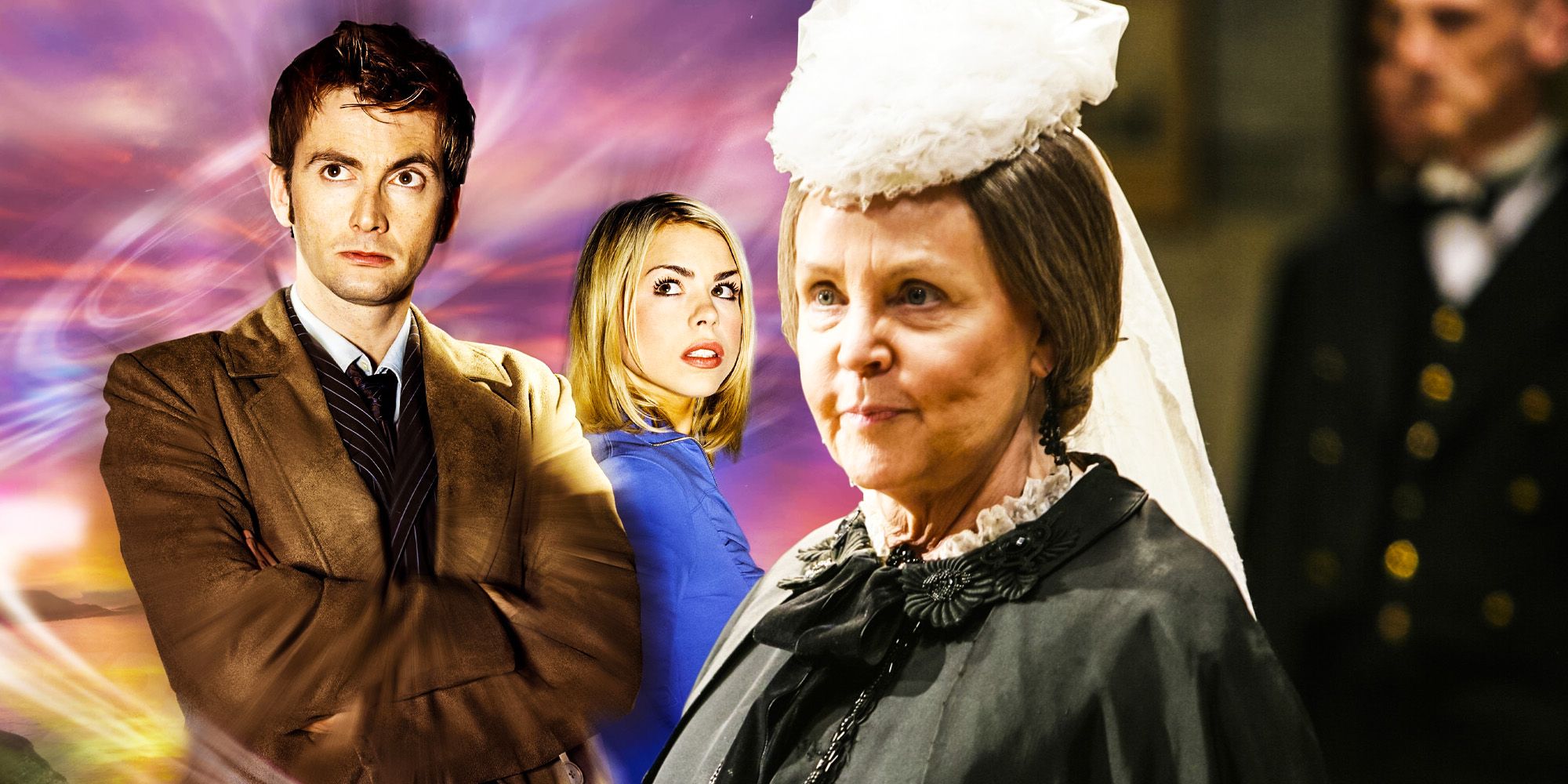Doctor Who is renowned for putting its own spin on history, and at one point its fictionalized version of Queen Victoria was on the butcher's block. In real life, the British monarch passed away in her sleep at the age of 81 after suffering a cerebral hemorrhage. Showrunner Russell T Davies, however, had very different plans concerning the Queen of England's fate while conceptualizing the Doctor Who revival's sophomore season.
Doctor Who season 2, episode 2, "Tooth and Claw," follows the Tenth Doctor and Rose Tyler as they discover Queen Victoria traveling across the Scottish highlands in 1989. The duo venture with the Queen and her guards to the Torchwood Estate, unknowingly entering a trap devised for the monarch by a Lupine Wavelength Haemovariform (dubbed a "werewolf" for simplicity) and its brethren. Adamant on using Queen Victoria's body as a vessel to continue its ancient existence, for the purpose of ruling the Earth, the werewolf makes to attack the Queen before the Doctor works out a way to stop the creature. Avoiding any risk of breaking the timeline, the less-than-amused monarch isn't killed.
However, Queen Victoria did not survive "Tooth and Claw" in the earliest drafts of the episode by Russell T Davies' (who is returning to Doctor Who). As revealed in a 2006 special edition of Doctor Who Magazine, the monarch would've faced her demise at the claws of the werewolf, thus changing time drastically. This twist laid the groundwork for an early version of Season 2's parallel world exploration, with Queen Victoria's death resulting in the formation of an alternate reality. Of course, this later became the "Rise of the Cybermen" and "The Age of Steel" two-parter.
Why Doctor Who Didn't Kill Off Queen Victoria
Russell T Davies' reason for not pursuing this plot thread is simple. The showrunner decided that he didn't want to overcomplicate matters for casual viewers who watch the show less religiously than die-hard fans. Davies is known to prefer much more subtle, less complicated story arcs. For instance, mentions of the "Torchwood" organization are woven throughout the fabric of Season 2, with the arc's big pay-off awaiting viewers in the finale. In this case, the Torchwood institute (later written out) led to Rose's tragic departure from the Doctor's life in "Doomsday."
Queen Victoria dying at the end of "Tooth and Claw" would've deviated from events as we know them and put the Doctor in a tricky situation. Ultimately though, Russell T Davies as showrunner knew what was best for Doctor Who at the time, and he had his reasons for not pursuing the plotline past the early drafts stage. Despite its revised ending, "Tooth and Claw" has rightfully earned its status as a chilling Doctor Who deep-cut with a clever plot, albeit one that relies heavily on coincidence.


